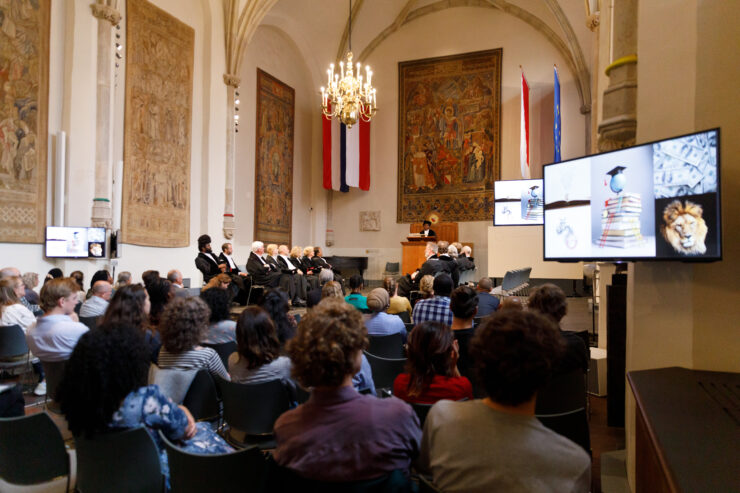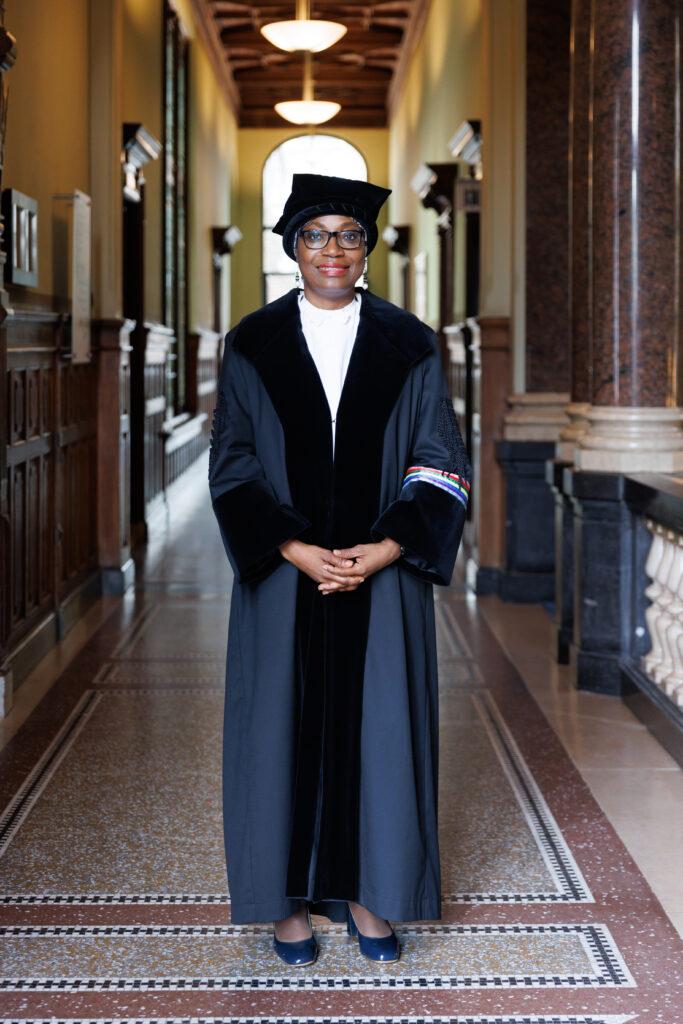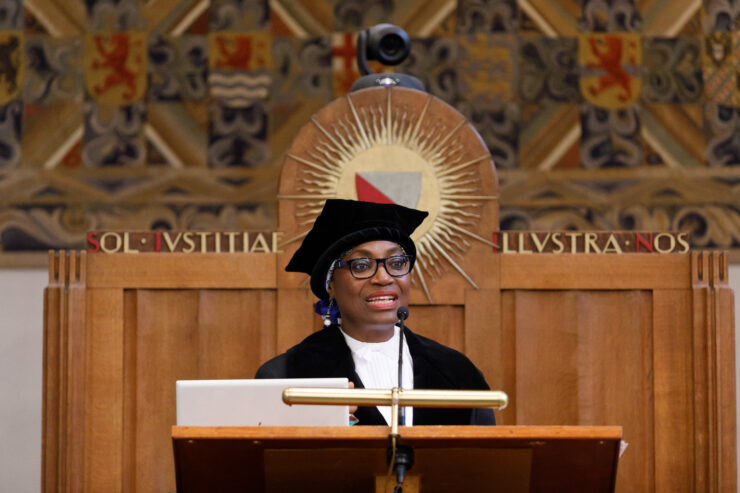Appointment
Inaugural lecture Dr Fatima Denton: ‘It’s time we owned the future’
Dr. Fatima Denton has been appointed to the Prince Claus Chair in Equity and Development 2022-2024 at Utrecht University. On July 5, she gave her inaugural lecture in which she explored the dynamics of power and powerlessness in climate diplomacy beyond the surface of just transitions.
During her lecture, Fatima Denton took her audience on an insightful journey into the intricacies of power dynamics, raising fundamental questions: What is the essence of power? Where does it reside? What fuels its existence? She contended that exploring these inquiries would enhance our comprehension of how power is harnessed to generate and perpetuate certain scenarios and outcomes.



Perspectives on power
Her lecture seamlessly intertwined the perspectives of influential social theorists and philosophers, ranging from Marx to Foucault, with personal anecdotes and childhood reminiscences. Denton skillfully traversed political, economic, social, legal, and institutional paradigms that facilitate the prevalence of power. By illustrating instances of power’s impact on justice and tracing the origins of injustice in negotiation processes, she shed light on the prevailing winner-takes-all approach that underpins current institutional governance and systems.
Restore trust
Considering the urgency of addressing climate change as a matter of our collective humanity, Denton posed a thought-provoking question: How can we liberate ourselves from the winner-takes-all mindset? Her argument focused on the utilization of soft power in climate diplomacy to influence outcomes that lead us closer to achieving emissions reduction goals of 1.5 degrees and enabling sustainable low-carbon development. She emphasized the need to restore trust in ways that foster effective operations for implementing climate action.
Our challenge is to use the fierce urgency of the present to drive a deep institution turn into our economic ordering towards, equality, democracy and environmental justice. It is time we owned the future.
Our shared humanity
In her concluding remarks, Fatima Denton highlighted how environmental degradation has engendered artificial divisions, pitting the North against the South, the powerful against the powerless, and the rich against the poor. Rather than succumbing to this divisive “us versus them” mentality, Denton urged the audience to recognize that nature is impartial to ethnicity, race, and wealth; it does not discriminate. She advocated for positioning ourselves on the barrier of justice, not as dividers or adversaries, but as enablers, uniters, and indicators of our shared humanity. This perspective would serve as a reminder of our collective responsibility in the face of shared risks and shared prosperity.